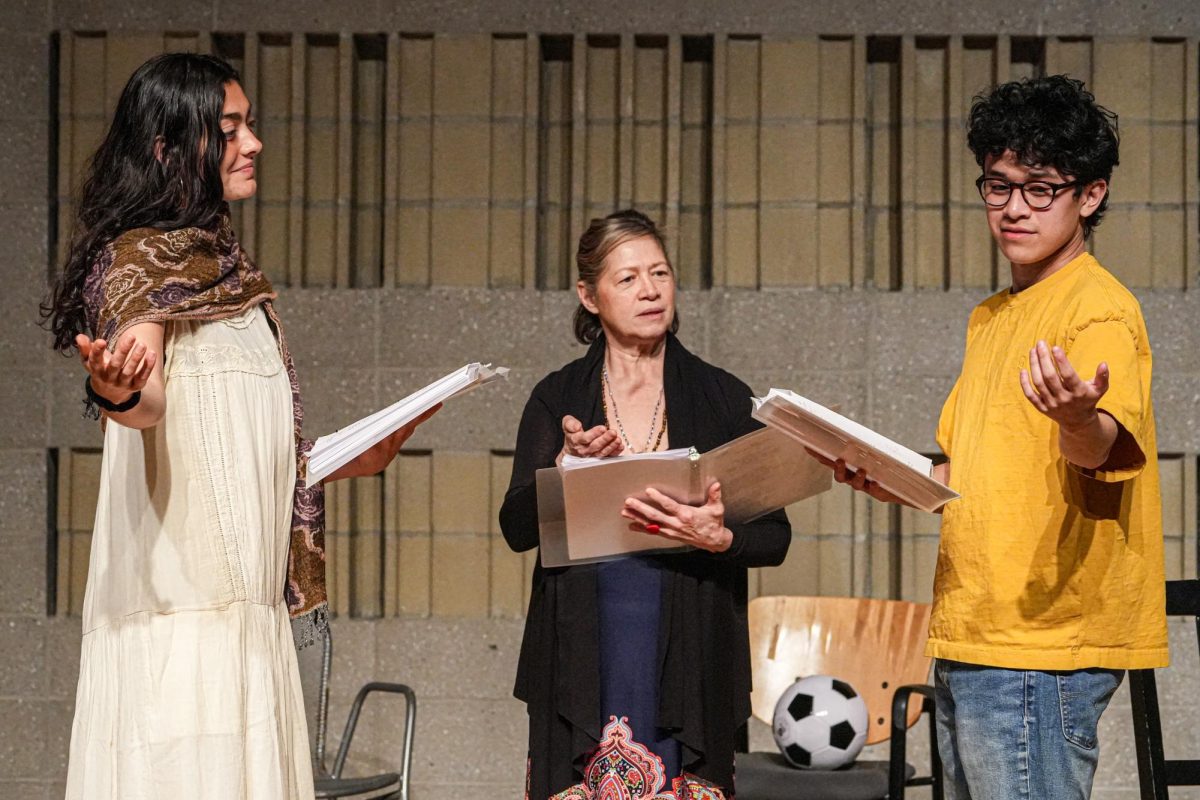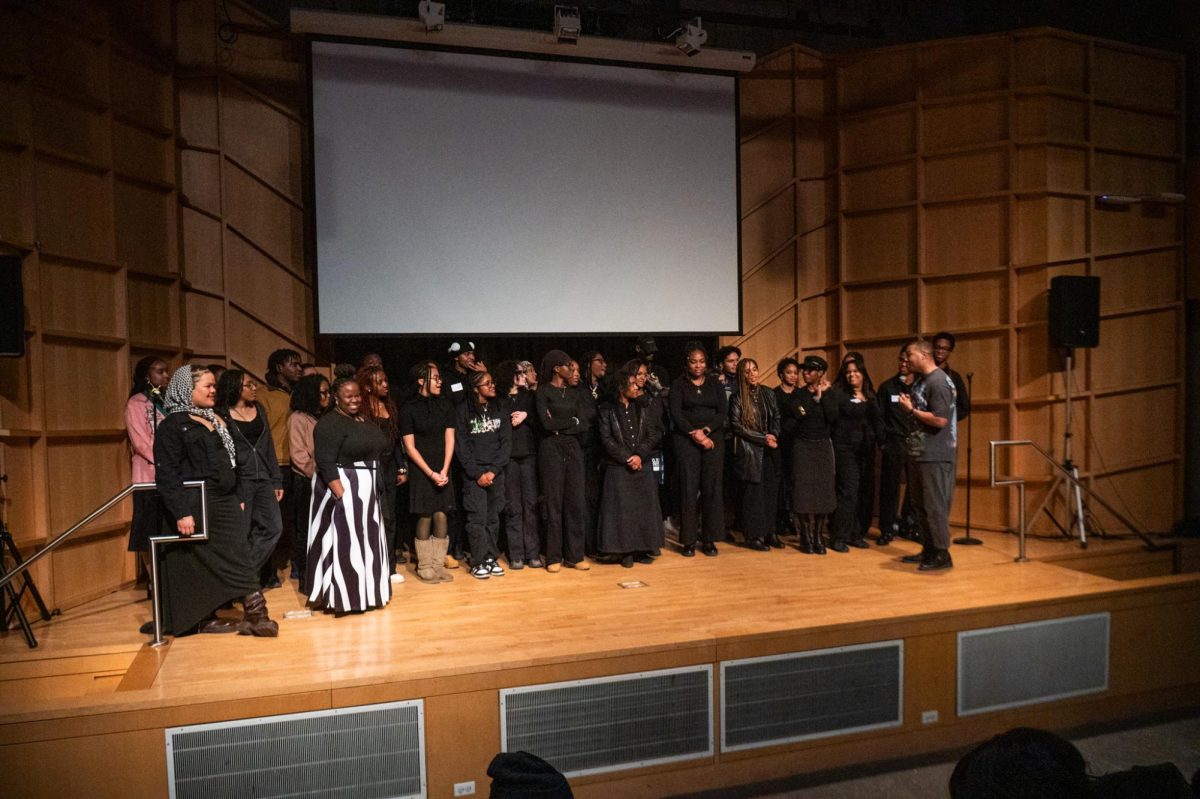The Engleman Recital Hall was full of students and faculty, all watching two actors onstage. Jason had been assuring his wife Medea throughout the play that she didn’t need to worry about his relationship with his boss.
“I married her,” he told Medea, admitting that her concern was well-founded. Gasps and exclamations erupted around the theater.
The actors, charming Bradley Tejada and magnetic Alex Costello, held their scripts, surrounded by a makeshift set. Their stage presence alone was more than enough to keep the audience engaged.
“Mojada: A Medea in Los Angeles” is a 2013 play written by Mexican American MacArthur Fellow Luis Alfaro. It is the latest play performed as part of Baruch College’s Joel Segall Great Works Reading Series, organized by the Great Works program and the Department of Fine and Performing Arts.
The director of Great Works, Laura Kolb, and the director of the staged readings, Christopher Scott, select a play each semester that aligns with the kinds of materials Baruch students study in either Great Works of Literature I or II. In the fall 2024 semester they chose “Miss Julie,” a play from the 1880s, and this semester they chose a modern retelling of the classic Euripides tragedy “Medea.”
Alfaro’s play focuses on an understated theme in the original — Medea is an immigrant, exiled to a new country with her new husband. “Mojada” is about a family of Mexican immigrants in Los Angeles.
Medea is devoted to her husband Jason and their son, played by Nik Mucha. She works hard on her sewing and never leaves her home, so she doesn’t know many other immigrants in the barrio. She’s isolated and her family is her whole world.
When Jason marries another woman, Armida, played by Cynthia Bastidas, behind her back and Armida threatens to take her son, Medea loses her mind and tragedy ensues.
Scott said the play was chosen with its compassion for immigrants in mind, given the hostility toward immigrants in the U.S.’s current political climate. Scott said he sometimes calls these performances “invited rehearsals.” They aren’t full productions with designed sets, stagehands or finalized sound and light cues.
The audience was told beforehand to imagine a faux ficus tree as a banana tree. No two chairs onstage matched. When stage directions called for one character to slap another, the actors only hit each other on the shoulder to be safe.
Because they only had four rehearsals before their first performance in front of an audience, Scott told his actors to follow their instincts.
“I give them little things to think about and just trust them,” he said. “I give them freedom.” Wilemina Olivia-Garcia, who played Medea’s live-in servant, Tita, described their rehearsal process in the Q&A that followed the reading.
She said they began with an in-depth table read devoid of staging. This gave them an opportunity to get to know the characters they’d play without worrying about the performances to come.
There were eight readings between March 24 and 27, and each was a little different as the cast became more familiar with their material. During the second performance, Jason spilled a bottle of water standing in for beer onstage.
Without missing a beat, he snapped at Tita to help clean it up and rushed offstage, flustered. When it was brought up in the Q&A, Tejada said it was a mistake, surprising some.
“As an actor, you don’t really want those moments to happen,” Tejada said. He then admitted, “But it was kind of cool.”
It was a testament to how immersed the actors were in their performance.








